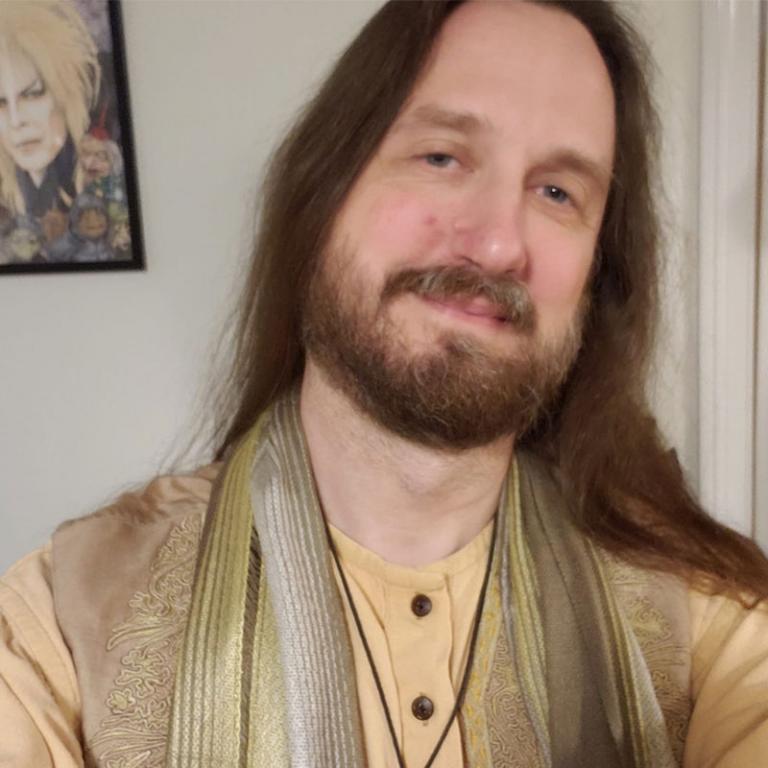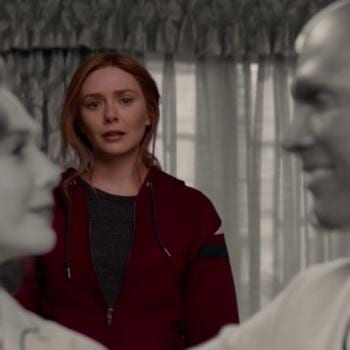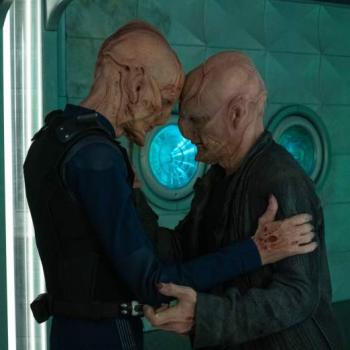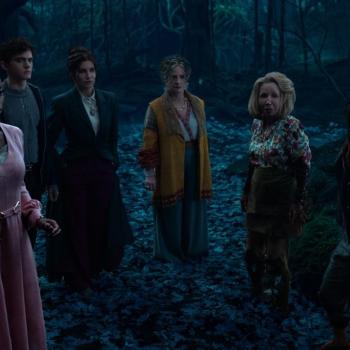Have you noticed how often women who are either witches, superheroes, or fantasy heroines have to encounter some version of power dampening in their character development?
Recently, I binged the first season of the British series “A Discovery of Witches,” in preparation for the second season that is airing on AMC right now. And while I enjoyed the show (and will be doing a full write-up of the series later), I was immediately struck by the use of a trope that has been so pervasive in fantasy films, television, and comic books: what I’m calling the “disempowered woman” trope. In the series, we learn that the main character, Diana Bishop, who already embodies a “chosen one” trope of sorts, has been “spellbound” by her own father.
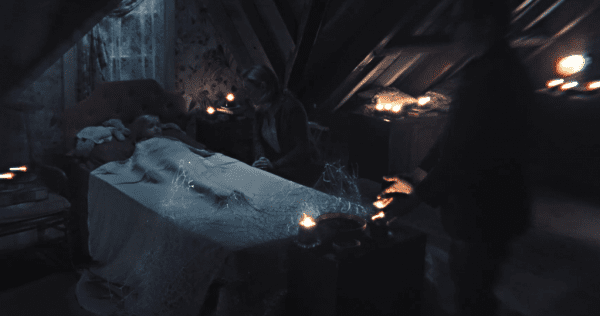
Of course, the first thing I think of when I hear “spellbound” is this. But in “A Discovery of Witches,” an adaptation of the novel series by Deborah Harkness, “spellbound” is a term that denotes a witch being cut off from their power, represented by a gossamer spider-web that is woven around the victim and sealed. The adult Diana, whose powers are starting to clumsily manifest through sheer instinct, has recurring dreams of being trapped in a spider web, until we see later in the season that this was actually done to her as a child.
Now in the world of the show, this act of binding is shown as protective, being performed by her father who was attempting to hide Diana’s potentially immense magical power from those who would manipulate her, but it’s difficult not to think of all the connotations of binding in the real world of witchcraft. I say the real world, but of course, when many Pagans think of binding they think of the scenes in “The Craft” where the adversarial teen witches bind each other from using magic. But the act of binding, of course, is one of the more controversial workings in the witch’s spellbook. And we’ve certainly heard a lot more about binding lately due to all the activity around certain political figures.
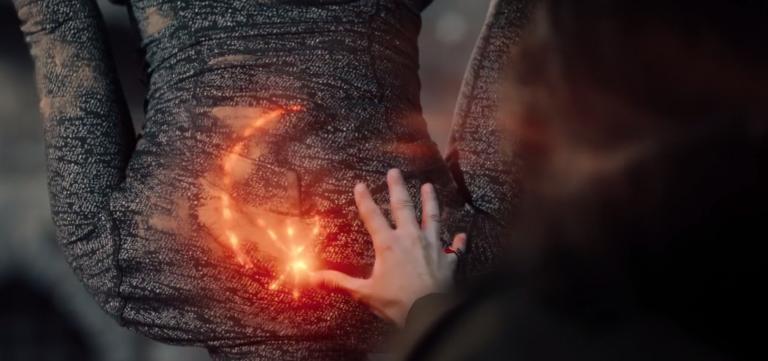
It’s also significant that on the show this binding is forcibly removed by the intense Finnish witch Satu, against Diana’s consent, in what amounts to a torture scene. What are the implications here? That the protective father dampens the heroine’s power but the inhuman villain, a fellow female witch, is the one that releases it? That both patriarchy and feminism can manipulate non-consensually? That patriarchy has good intentions, but feminism doesn’t? I realize I’m stretching here, but there’s a whole lot to unpack with this. I don’t have any clear answers, but this story is a prime example of the age old disempowered woman trope.
Of course, not all uses of the trope are created equal. It’s worth looking at a few examples, recent and classic, in order to get a sense of how the trope functions.
The Apocalypse Maiden
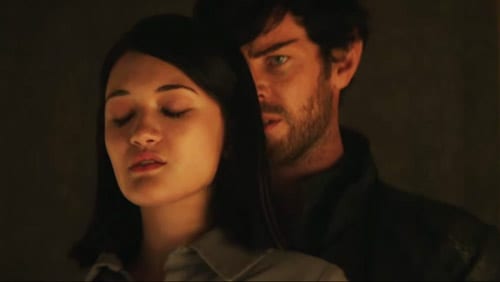
Just last year, while it got us all in our nostalgic feels to see Picard and some of the crew of the STNG Enterprise, as well as seeing Seven of Nine kicking ass again, “Star Trek: Picard” unfortunately based its entire first season around this trope. Soji, ostensibly one of Data’s twin “daughters” is essentially one of those prophesied “destroyers” who is completely unaware of her own power until, of course, a traumatic event unleashes it. In the episode “Impossible Box,” Soji’s Romulan spy boyfriend Narek takes her through a meditation exercise to get the information he wants, then tries to kill her by trapping her in a room full of toxic poison. She realizes her power and punches through the floor.
In 2019, Fox’s X-Men films ended their franchise (well, except for the dismal “New Mutants”) with yet another version of the Dark Phoenix storyline from the classic comics. After “X-Men: The Last Stand” (2006) played the Phoenix storyline as a straight up possession situation with very little character work involved, “X-Men: Dark Phoenix” added a twist in which psychic X-Men leader Charles Xavier dampened Jean Grey’s power to protect her from the traumatic memory of causing her parents’ death in the car crash. In the film, Xavier is seen as crossing a line to do this, so that when Jean loses her mind, the viewer – and indeed, other characters, such as Hank McCoy (the Beast) blames him.
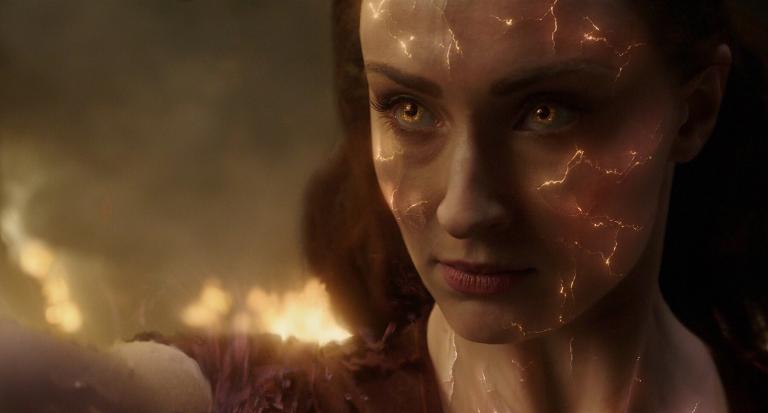
The X-Men example is one of those situations, very common in comics and manga, that tends to imply that women and their vast power must be controlled, and without that control, they will go mad and destroy the world. It’s been referred to as the “Apocalypse Maiden,” and it’s a pervasive trope.
Almost this exact storyline plays out in the first season of Netflix’s “Umbrella Academy,” in which the youngest member of an adoptive superhero family has her powers and memories suppressed by the noble, yet highly abusive patriarch. When Vanya (Elliot Page) realizes her power, she literally destroys the world and the entire second season is a time travel story to undo that damage.
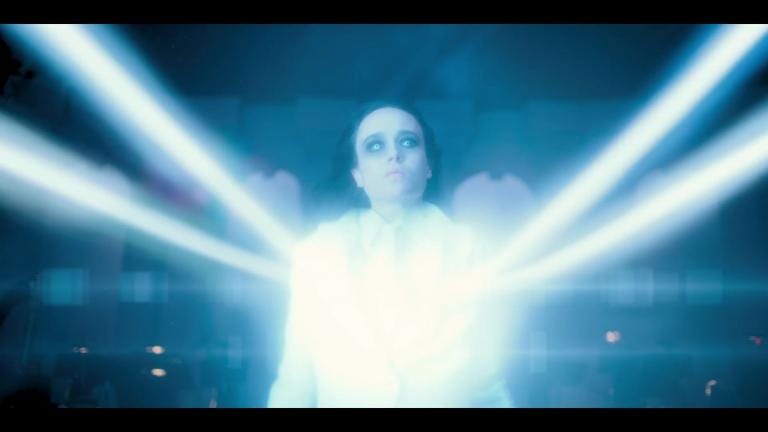
Also, one of the more well known manifestations of this is the Dark Willow storyline in “Buffy the Vampire Slayer,” an homage to the Dark Phoenix storyline even lampshaded by the geek characters of season 6.
Yet even though Jean Grey and the Dark Phoenix saga are most commonly associated with the trope, it’s actually the treatment of a different mutant that really doubles down on the fear of women. And that character is certainly getting more attention currently in pop culture due to a certain Disney+ show: Wanda Maximoff, the Scarlet Witch. Throughout her long career in Marvel Comics, no other character has been so manipulated, with villains ranging from Magneto, who was established in the 80s as her father in a famous ret-con, to Doctor Doom, Immortus, Master Pandemonium and other demonic forces messing with her head constantly. Even her allies, such as her teacher Agatha Harkness, erases her memories at certain points for the “greater good,” taking advantage of Wanda’s reality warping powers. At certain points, the sometimes controlled Wanda, attacks and kills several Avengers, creates the House of M reality where mutants rule the planet, and then out of guilt, decimates the mutant race with the “no more mutants” spell.
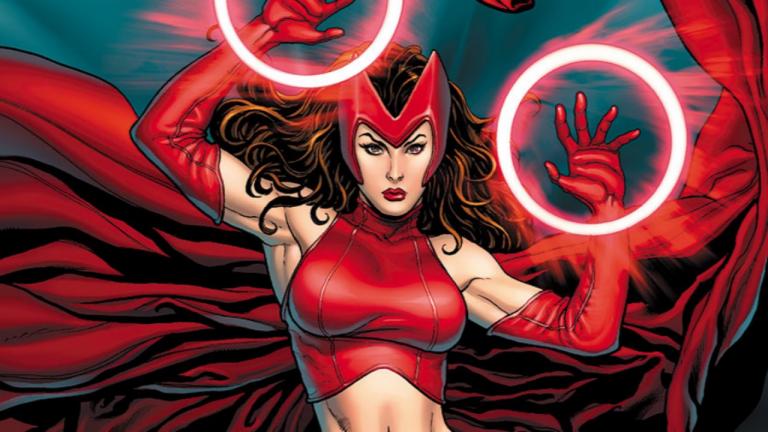
In the current “Wandavision” show, it’s not yet clear how the MCU will play out Wanda’s story. With the three episodes so far, we get conflicting evidence that Wanda is either being controlled (“Who’s doing this to you, Wanda?“) or that she’s the one doing the manipulating, keeping the characters in a warped sitcom reality, in the vein of the classic “Twilight Zone: episode, “It’s A Good Life.”
Significantly, one of the classic sitcoms the “Wandavision” showrunners homages is “Bewitched,” a program based on the premise that a suburban wife, under pressure from her husband, has to keep her powers hidden and under control. The comedy there, of course, was that Samantha’s attempts to be the good housewife often were subsumed by her magic and the chaos of her witch family.
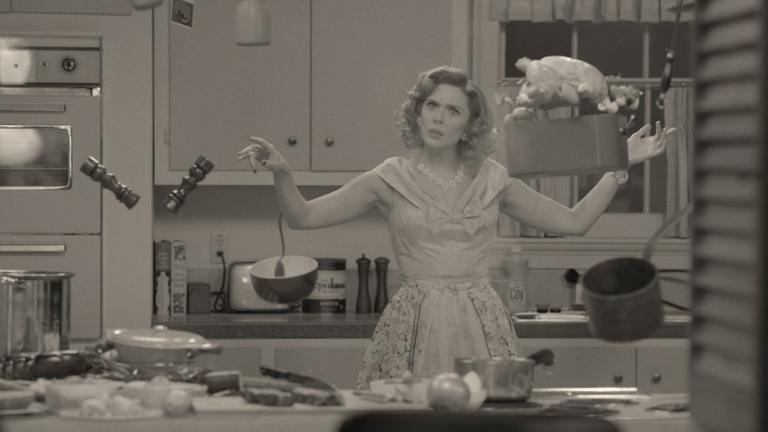
So this has been an age old trope that is prevalent for women, usually in stories about witches and superheroes (or in the case of Wanda Maximoff, both!). For whatever reason, women must have their power dampened. Is the message here one that goes all the way back to the misogyny at the heart of the historical witch trials, or indeed to the story of Genesis and Eve’s temptation, which has been distorted into a reason for oppressing women for centuries?
(Note: an intrepid reader reminded me this exact trope was used in the recent “The Craft: Legacy,” another witchcraft example. Like I said, it’s everywhere!)
With these more modern stories, it seems, the misogyny isn’t necessarily overt. In fact, it’s almost like women’s power and the fear of it is kind of an open secret. As if everyone in these patriarchal worlds knows, or at least suspects, that women’s power unbound is dangerous and ultimately destructive. So men like Charles Xavier or Stephen Proctor, Diana Bishop’s father on “A Discovery of Witches,” are keeping their charges in check for their own good.
Gaslighting is the Supervillain
The one property I can recall that calls bullshit on these ideas is the MCU’s “Captain Marvel,” released the same year as “X-Men: Dark Phoenix.” In the film, pilot Carol Danvers (Brie Larson) is basically brainwashed by the Kree to be one of their warriors, but with her power dampened by the Supreme Intelligence of the Kree homeworld, she’s told, for her own good. Carol spends a good deal of the film being utterly gaslighted by the Kree, particularly Yon-Rogg (Jude Law), Carol’s mentor and teacher.
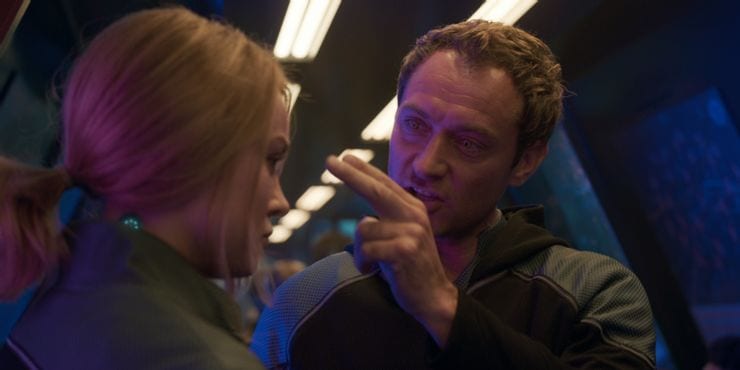
When it’s revealed that Yon-Rogg has been manipulating her the entire time, and Carol’s full power is unleashed, the writers made the wise decision to forego the obligatory battle scene between the two characters. As Yon-Rogg attempts to provoke Carol to fight him, she simply blasts him away, saying she has nothing to prove. And here the message of the film is laid bare: that the patriarchy (in the form of the Kree society) IS holding back a powerful woman. But when the woman realizes that power she simply wields it with confidence and equanimity. She doesn’t overreact. She doesn’t destroy the world. She doesn’t lose her shit. Critics complained about Brie Larson’s understated performance in the film, but that understatement was EXACTLY the point.
When watching season one of “A Discovery of Witches,” which technically came out before the “Captain Marvel” film, my first thought about the spellbinding was, “here we go again.” When will we get to the point where the women are just powerful and they’re allowed to wield that power – no, not allowed, perhaps supported and encouraged? I get that all heroines can’t be Wonder Woman (another Diana), but there has to be a new way to tell the story of how a woman, especially a witch, discovers and wields power.


